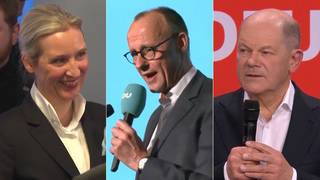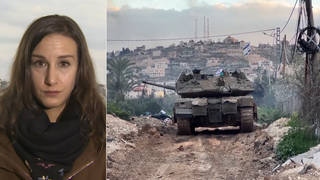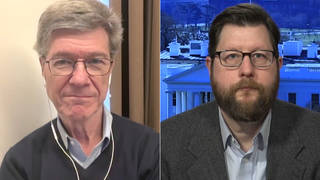
Related
President George W. Bush meets today with the President of Algeria Abdelaziz Bouteflika. In its only press releaseconcerning the meeting, released three weeks ago and only three lines long, the White House explained:
“The United States and Algeria share a broad range of interests in the Middle East and Africa, and have sought toenhance the level of their bilateral cooperation in recent years. The President looks forward to discussing bilateraland regional issues with President Bouteflika, including efforts to promote greater prosperity and stability in NorthAfrica.”
The meeting comes at a time when African countries are seeking to strengthen economic ties in the face globalizationled by Western nations. Yesterday, African leaders pledged to move their impoverished continent into the mainstreamof the global economy with a revamped structure modeled on the European Union. The 38-year-old Organization ofAfrican Unity (OAU) is to be transformed into a stronger African Union, which will be able to create a commonparliament, a central bank and court of justice, and a single currency. Nigeria, South Africa and Algeria are themost powerful countries in the OAU.
But at the same time, the U.S. is interested in further opening up Algerian markets to American industry, rangingfrom pharmaceuticals to banking to oil. Algeria is a key player in the OPEC, and oil and gas account for 95 percentof its export earnings. The oil industry, which is nationalized, produces 800 million barrels a day. U.S. companiesare the largest foreign investor in exploration and production.
The meeting between the two presidents also comes during the most extreme social and political unrest in the NorthAfrican country in a decade. In April, the Berbers, the oldest inhabitants of North Africa, rose in protest of thebrutal Algerian military regime, and to demand the official recognition of their language. Sparked by the shootingin police custody of a Berber youth on April 18, the demonstrations have spread from the Kabyle region to other partsof the country, and have come to focus less on cultural oppression and more on the police repression as well asrising unemployment, mounting poverty and a chronic housing shortage. On June 14, a massive demonstration in thecapital city of Algiers drew 1 million people and turned into a riot in which 4 people were killed and over 1,000injured. The government has since banned protests there. At least 60 people have been killed since the Apriluprising.
Guests:
- Azzedine Layachi, Associate Professor of Politics at St. John’s University, author of numerous books andarticles on North Africa, including “The Algerian Economy After Structural Adjustment,” in Middle East Insight,November-December 1999, pp. 25-28, Economic Crisis and Political Change in North Africa, (Praeger, 1998) andThe United States and North Africa: A Cognitive Approach to Foreign Policy, (Praeger, 1990).
- Khalida Messaoudi, Member of Parliament who is Berber. Messaoudi was forced underground in the early1990s when an Islamist rebel group issued a death threat against her. During that time she remained a politicalactor, criticizing both the Islamists and the government, and fiercely advocated for women’s rights. She re-emergedin 1997, and was elected to parliament.
- Meredeth Turshen, Professor of Planning and Public Policy at Rutgers University, member of Executive Boardof the Association of Concerned Africa Scholars.
Related link:
??
????
????
????
??











Media Options